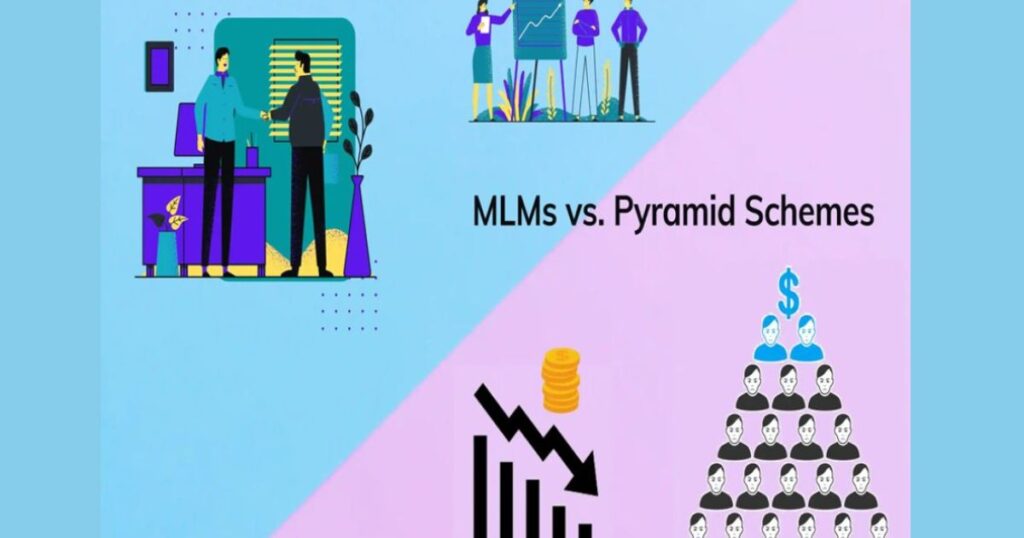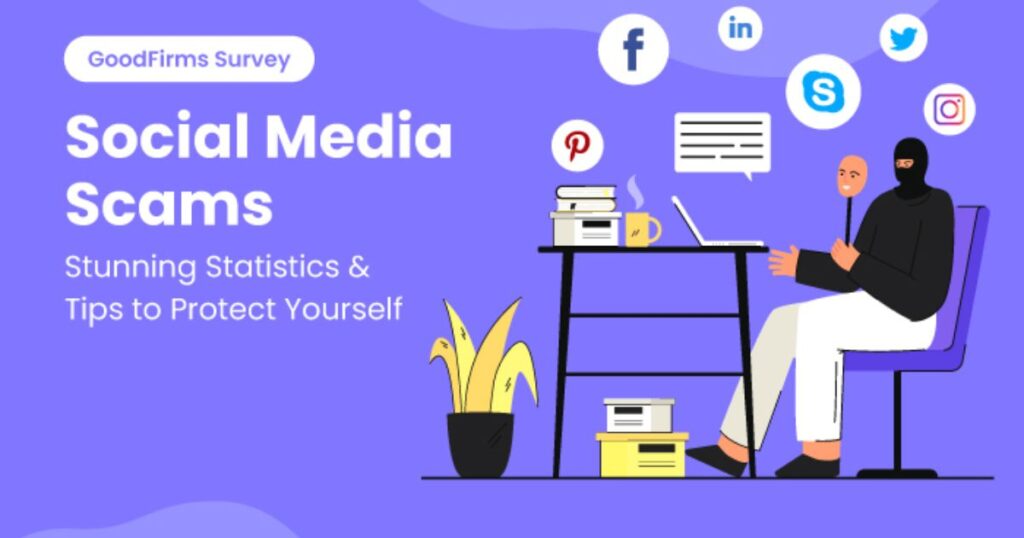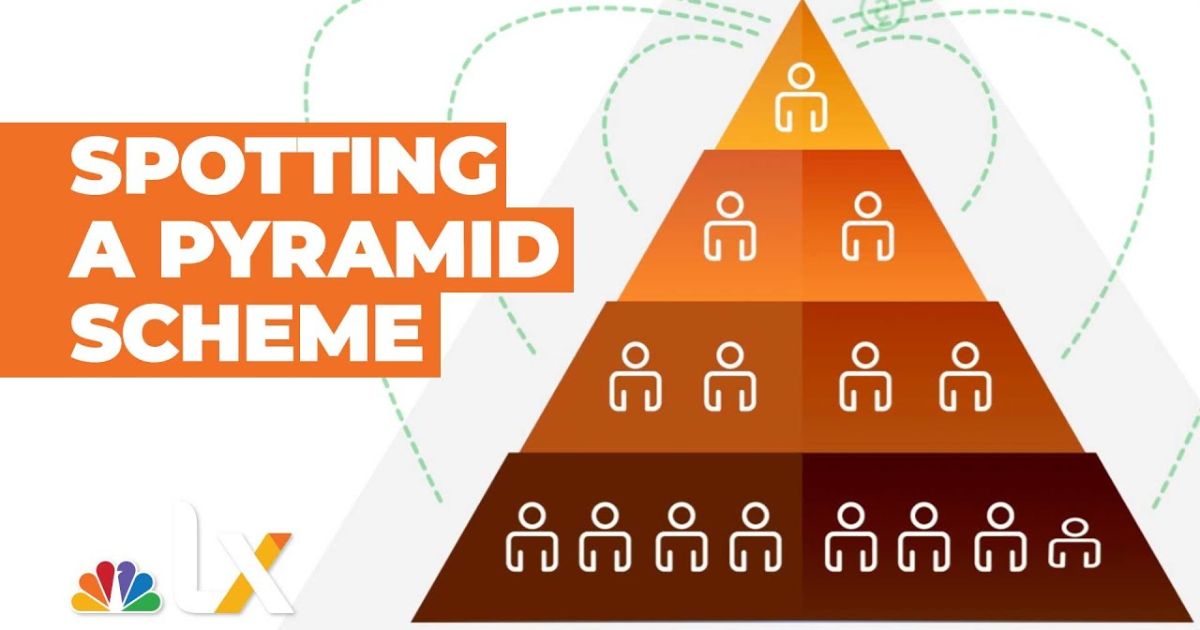In the digital age, social media has transformed from a connection platform to a potential minefield of financial traps. Drive social media pyramid scheme awareness has become more critical than ever for American consumers navigating the complex landscape of online opportunities.
Every day, thousands of unsuspecting individuals fall prey to sophisticated pyramid schemes that masquerade as legitimate business ventures, promising financial freedom but delivering nothing more than empty promises and financial devastation.
Understanding Pyramid Scheme Dynamics
The modern pyramid scheme represents a digital predation strategy that leverages the interconnectedness of social media platforms. These fraudulent schemes exploit human psychology, using glossy appeals and high-pressure tactics to manipulate potential victims. Sophisticated algorithms and targeted marketing techniques allow these schemes to penetrate even the most discerning online communities. The digital landscape provides unprecedented access to vulnerable populations, making scam awareness an essential survival skill in the 21st-century economy.
Read This Blog: SLO Downsell Conversion Rate:
Pyramid Schemes vs. Multi-Level Marketing (MLM)

Pyramid Schemes vs. Multi-Level Marketing (MLM) are often confused, but they are fundamentally different. MLMs are legitimate businesses that generate income primarily through product sales. Participants earn money by selling goods and sometimes by building a sales team. In contrast, pyramid schemes are illegal operations that focus on recruitment over sales, often lacking a real product. Pyramid schemes collapse as recruitment slows, causing participants to lose money. Always verify the business model to distinguish a legal MLM from a fraudulent pyramid scheme.
Legitimate Mlm Characteristics
Multi-Level Marketing (MLM) operates on a razor-thin line between legitimate business and potential fraud. Genuine MLM structures focus on product sales as the primary revenue generator, offering real value to consumers. Representatives earn income through direct sales and modest commissions from their team’s performance. The key distinguishing factor lies in the emphasis on actual product distribution rather than recruitment-based income. Legitimate MLMs provide tangible products, transparent compensation plans, and clear pathways to earning potential.
Pyramid Scheme Red Flags
Pyramid schemes reveal their true nature through several critical indicators. These fraudulent structures prioritize recruitment income over genuine product sales, creating a house of cards that inevitably collapses. High entry fees, complex starter kits, and ambiguous product offerings serve as primary warning signs. The business model relies on continuously recruiting new members to sustain payouts, making long-term viability impossible. When the recruitment pool dries up, the entire structure crumbles, leaving countless victims in financial ruin.
Read This Blog: Jiniphee OnlyFans Leak:
Common Social Media Scams

Common Social Media Scams exploit the trust and convenience of online platforms to deceive users. These scams include phishing attempts, where fake links steal personal information, pyramid schemes disguised as legitimate opportunities, and fake investment offers promising unrealistically high returns.
Scammers also use job frauds and influencer-backed promotions to lure victims. To stay safe, always verify sources, avoid sharing sensitive data, and be cautious of offers that seem too good to be true. Awareness is key to avoiding these traps.
Fake Investment Opportunities
Cryptocurrencies and forex trades have become fertile ground for sophisticated scammers. These fake investment opportunities leverage the complexity of financial markets to create illusions of guaranteed returns. Scammers craft elaborate narratives of extraordinary wealth, using doctored screenshots, fabricated testimonials, and complex technical language to appear legitimate. The promise of easy money draws in unsuspecting investors who lack specialized financial knowledge.
Phishing Scams
Phishing scams represent a calculated approach to stealing personal and financial information. Fraudsters create meticulously designed fake advertisements and accounts that mimic legitimate businesses. These digital traps often offer limited-time offers, free items, or exclusive discounts to entice users into revealing sensitive data. The sophistication of these scams has elevated digital theft from a crude operation to a refined art form targeting unsuspecting social media users.
Ponzi Schemes
Ponzi schemes operate as a more sophisticated cousin of traditional pyramid structures. These elaborate frauds create an illusion of legitimate investment by paying earlier investors with funds from new recruits. The scheme maintains an appearance of financial legitimacy through consistent, seemingly predictable returns. However, the entire structure depends on continuous new investment, making it fundamentally unsustainable.
Influencer-Backed Fraud
Influencers in beauty, wellness, and finance have become unwitting vectors for fraudulent schemes. Many well-intentioned content creators unknowingly promote products or opportunities that later reveal themselves as scams. The social media trust ecosystem allows these fraudulent schemes to spread rapidly, leveraging the credibility and reach of trusted personalities. The potential damage extends beyond financial loss, potentially destroying influencer credibility and eroding audience trust.
Impact And Legal Landscape
The impact and legal landscape surrounding pyramid schemes highlight the need for awareness and regulatory enforcement. These schemes cause significant financial losses, erode trust in legitimate business models, and exploit vulnerable individuals through deceptive practices.
The legal landscape is clear: pyramid schemes are illegal in most jurisdictions, with laws designed to protect consumers from fraud. Governments and watchdog organizations actively monitor such activities, emphasizing transparency and accountability. Educating the public about these issues is vital to fostering a safer economic environment.
Influencer Trust Erosion
When influencer-backed fraud occurs, the repercussions extend far beyond individual financial losses. The entire ecosystem of social media marketing suffers, as audiences become increasingly skeptical of promotional content. Influencers risk permanent reputation damage, while platforms struggle to implement effective screening mechanisms. The erosion of trust becomes a systemic problem that undermines legitimate marketing efforts.
Legal Considerations
Pyramid schemes occupy a complex legal landscape. Despite their prevalence, these schemes remain illegal under federal and state regulations. Consumer protection agencies continuously work to identify and prosecute these fraudulent operations. However, the digital nature of modern scams makes enforcement challenging, requiring ongoing adaptation of legal frameworks to address emerging technological trends.
Consumer Protection Strategies

Consumer Protection Strategies are essential measures to safeguard buyers from fraudulent practices and ensure fair trade in the marketplace. These strategies include enforcing regulations, promoting consumer awareness, and establishing mechanisms for dispute resolution. Governments and organizations implement educational campaigns to help consumers identify scams, understand their rights, and make informed choices.
Additionally, tools like warranty policies, data privacy protections, and complaint systems empower consumers against exploitation. Prioritizing these strategies builds trust and enhances the overall consumer experience in today’s dynamic economy.
Research Methodology
Effective scam awareness begins with rigorous research. Online reviews, consumer protection sites, and government databases provide critical insights into potential fraudulent operations. Consumers must develop a critical approach to evaluating online opportunities, looking beyond surface-level promises and investigating the fundamental business structure.
Critical Questioning And Intuitive Decision-Making
The most powerful defense against pyramid schemes is a combination of critical thinking and intuitive awareness. Consumers should approach work-from-home opportunities and easy money promises with healthy skepticism. Asking detailed questions about revenue generation, product value, and business sustainability can reveal potential fraudulent structures.
FAQ’S
What is a pyramid scheme?
A pyramid scheme is an illegal business model that relies on recruiting participants instead of selling real products.
How is an MLM different from a pyramid scheme?
MLMs focus on selling products for income, while pyramid schemes rely mostly on recruitment, making them unsustainable.
What are signs of a pyramid scheme?
High entry fees, no real product, and income promises based on recruitment rather than sales are major red flags.
Can influencers unknowingly promote pyramid schemes?
Yes, influencers may unknowingly endorse scams, affecting their credibility and followers’ trust.
How can I avoid falling for a pyramid scheme?
Research the business, ask questions, avoid high-pressure tactics, and trust your instincts if something feels off.
Conclusion
Drive social media pyramid scheme awareness represents more than a defensive strategy—it’s a fundamental life skill in the digital age. By understanding the mechanics of digital fraud, consumers can transform potential vulnerability into strength. Education, critical thinking, and ongoing vigilance are the most effective weapons against these sophisticated financial predators.
Stay informed. Stay skeptical. Stay safe.

Admin Account for ZenithFlares.com—offering insightful and up-to-date content across a range of popular topics, designed to keep readers informed, entertained, and engaged daily.
